Facebook, Twitter, TikTok, and other similar platforms spring to mind when you think about social media. All of these prominent platforms have one thing in common: they are all centralized, with all of their data being stored on servers owned by the sites’ parent firms. As a result of this, users have expressed worries about their data privacy throughout the years. Tales of customers’ data being sold to advertisers on these sites have become commonplace, and some have even been accused of collaborating to influence elections. With that backdrop, let’s segue into the world of blockchain-based social networks.
What they are
Decentralized social networks resemble mainstream social media platforms, except their data is stored on blockchains. This means that every entry or post is stored immutably on the chain. This data is contained in a network of nodes, which are often the computers of the users of the site. To that end, the more the users, the higher the site’s storage capacity. Further, each interaction between users is protected by end-to-end encryption. Usually, the site’s founder will set up rules on how to ethically use the site, but they have no further control over what users do on the site.
Perks of decentralizing social media
- It prevents the unethical sale and usage of user data for advertising or any other purposes.
- It prevents censorship of what users choose to post, as no central authority acts as overseers. This promotes their freedom of expression.
- Interactions are encrypted, thus maintaining the privacy and data security.
- Users can easily earn from their content by crowdfunding using crypto.
- The open-source nature of their code allows for the creation of private servers where content can be moderated more efficiently.
The downside of decentralizing social media
- Content once posted cannot be deleted.
- These sites are prone to 51% attacks.
- It is difficult to censor fake news and inappropriate content.
That being said, here are the leading on-chain social media platforms in the market today.
Society2
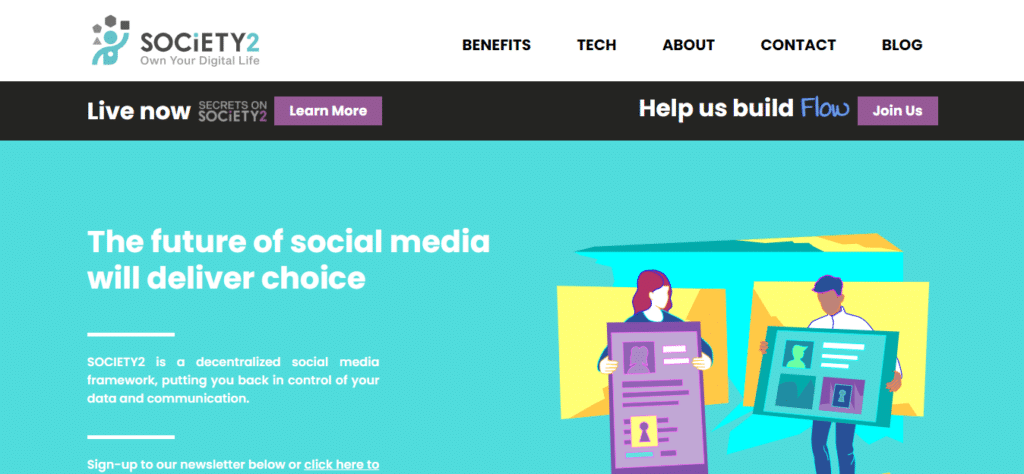
This is a social media platform built on the IOTA blockchain. It guarantees users of data privacy as well as the chance to earn IOTA tokens by watching advertisements. This way, rather than the developers earning from bombarding users with targeted ads, the users themselves are rewarded for choosing to view them. What’s more, developers can use the open-source code of Society2 to create new platforms.
This platform boasts a secrets messenger on which users can interact with their friends and family either privately or in group chats, with the utmost privacy. You don’t even need to register an account or download any software to access this feature.
Peepeth
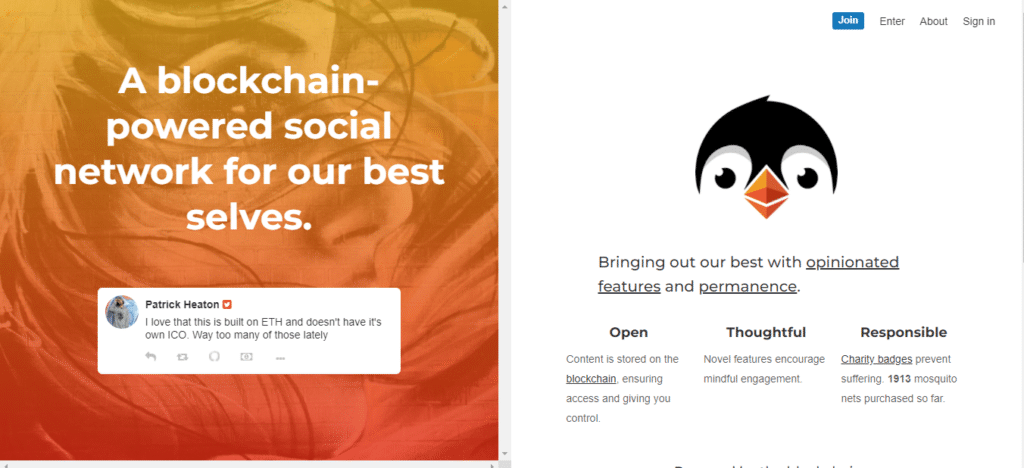
This is a decentralized network that doubles as a microblogging platform. You can think of it as Twitter on a blockchain. It is hosted on the Ethereum blockchain, and as such, it requires some ETH to participate. However, all these costs are not hidden from the users.
The platform boasts an ad-free experience for its users. Though any posts are permanently stored on Ethereum, the platform practices censorship of posts that violate its terms of service. However, anyone can monitor Ethereum to see what content Peepeth has censored.
Sapien
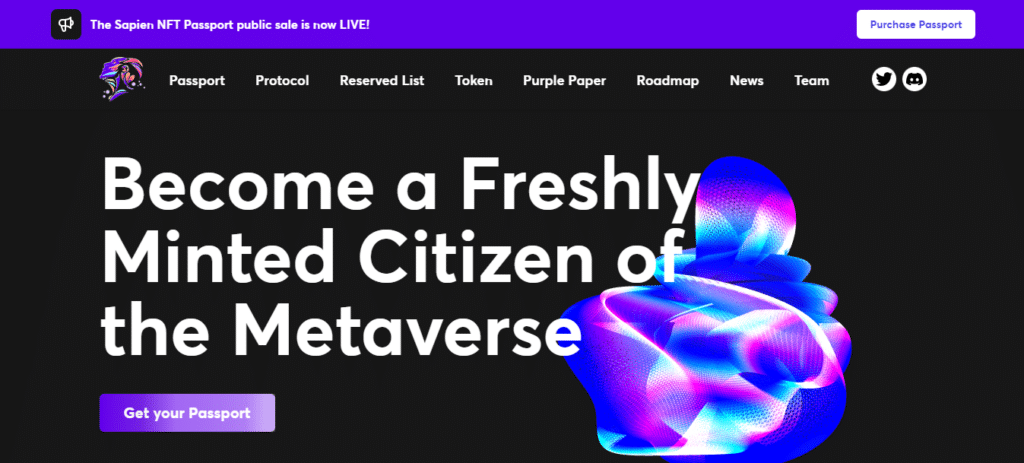
Launched in 2017, this is a social media platform hosted on the Ethereum network. It markets itself as a sovereign digital nation, where one can become a citizen of their metaverse through NFTs. It operates on the proof-of-value consensus mechanism. On Sapien, users can vote on social, political, and ecological issues. They can also stake SPN tokens and get rewarded for posting comments, creating content, and voting on posts.
Steemit
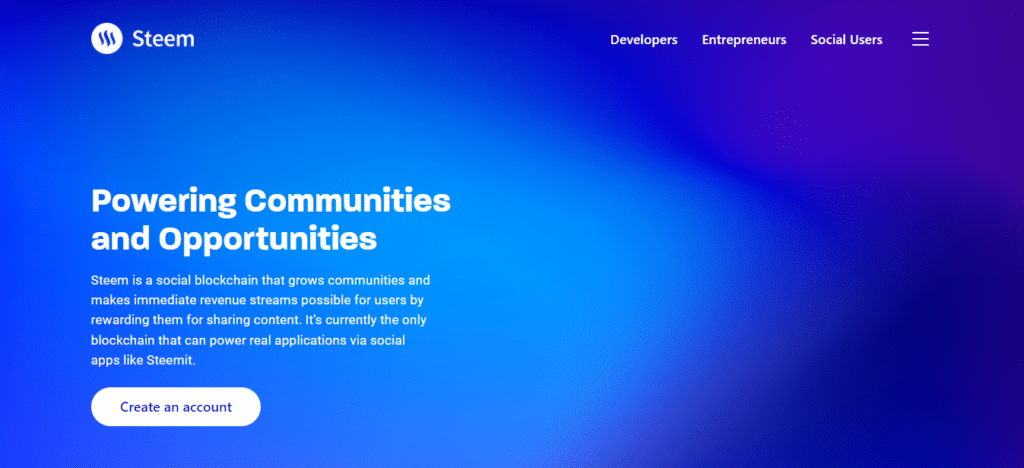
This is a decentralized social media platform centered around community building and user-generated content. It is built on the Steem blockchain, which is host to more than 300 apps. Users earn crypto rewards for creating and sharing content. By design, it resembles some aspects of Facebook and Reddit. Users are rewarded Smart Media Tokens (SMT) on their content depending on the upvotes their posts receive.
Diaspora
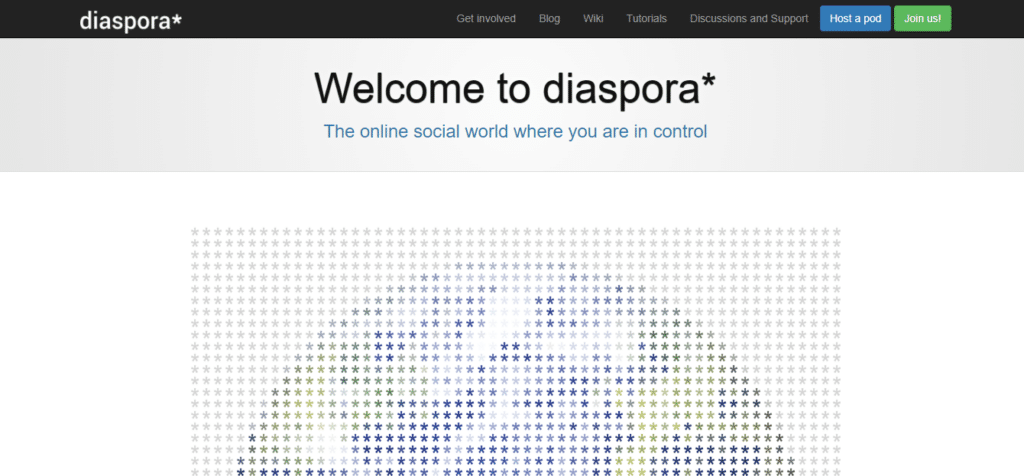
This is a decentralized social media network that is run by users for users. Its network contains a collection of numerous servers called pods. These pods contain users’ data, and users can choose which pod to register with when joining the platform. Regardless of the pod you choose, you’ll be able to interact seamlessly with other users on the platform.
Diaspora is a facilitative of anonymity as users don’t have to register using their real identities. You can also choose who sees your posts using the Aspects feature. Further, it does not require its users to sign over their data rights to the platform or any other third party.
GNU social
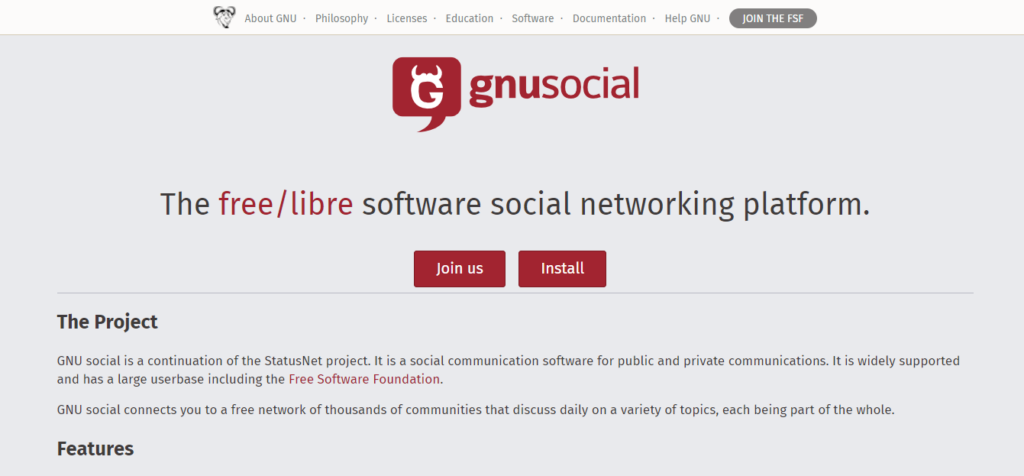
This is a free, decentralized social media platform. Like most mainstream platforms, GNU social allows its users to post status updates, announce events or interact with other users either in a private manner or through public communication. The platform boasts several servers located all across the globe, and users can choose the server they wish to register with. Some are restricted to people of certain regions, while others are dedicated to people that share a common interest. There are also servers that are open for all. Originally, it was developed as StatusNet and GNU social acts as a continuation of this project.
In a nutshell
Social media platforms have seen widespread adoption in recent years, as they have revolutionized the way we communicate with each other. However, they have raised several concerns, primarily about data privacy. Accusations have been made that these centralized sites are selling customer data to the highest bidder, either for advertising purposes or for political gain. Other platforms have received criticism for censoring user-generated content. All of these hurdles are solved by decentralized social media platforms, the likes of which we have discussed in this article.




